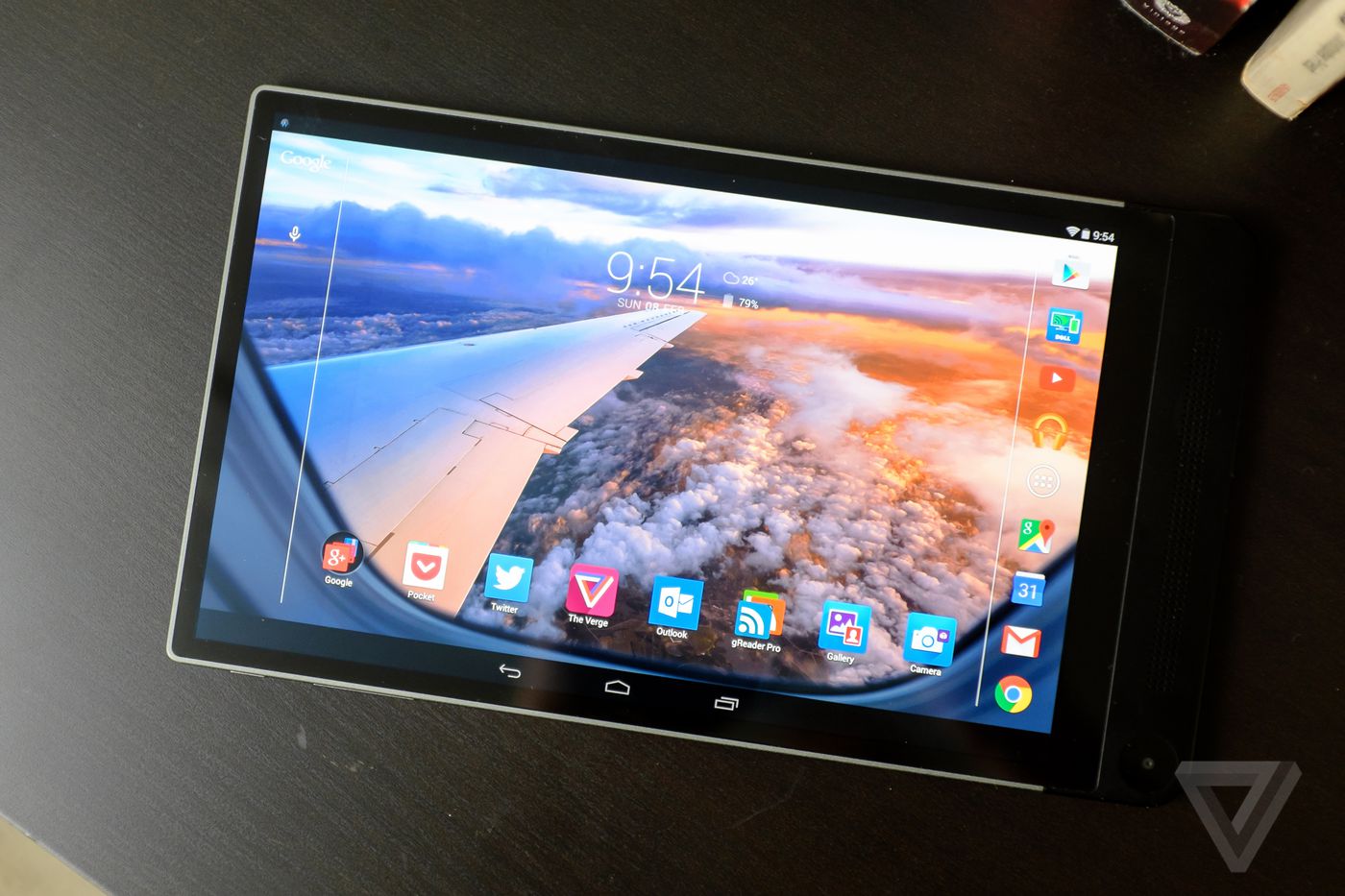This is very, very insteresting
This company is pulling off a surprise every day. Looks like an awesome Windows-based Chromebook alternative, somehow they manage to pack a 1920x1200 IPS screen in a $190 notebook. I know I've already said this in Broadwell's thread but time to take a note from Pipo and update the 1440x900/1366/768 TN screens from the >$899 Macbook Air Apple.
Dell Venue 8 7000 Reviews

The Verge said:"Intel's processor performs just as well as the best from Qualcomm"
In addition to its unique design, the Venue 8 uses an Intel processor, a relative rarity among mobile devices. It’s a 2.3GHz, quad-core Atom chip paired with 2GB of RAM and it provides a fast and responsive experience. If the Venue 8 didn’t have a big Intel logo emblazoned on the back of it, I wouldn’t have assumed it was powered by anything different than the standard Qualcomm fare. Games played smoothly, and though the tablet got warm in spots, it never got uncomfortable to hold (unlike the Nexus 9). The Atom chip is power-efficient, too: the Venue 8 lasted for 9 hours and 15 minutes on our rundown test and had no problem going for multiple days in normal usage.
www.theverge.com/2015/2/9/8004117/dell-venue-8-7000-tablet-review
Notebookcheck said:Performance is pretty good overall: in the single-core portion of the Geekbench 3 benchmark test, our review tablet performs exactly like the Samsung Galaxy Tab S 8.4 with the Exynos 5420 Octa CPU and ARM Mali-T628 MP6 GPU; the Apple iPad Mini 3 with its 64-bit A7 CPU performs over 45 % better. The multi-core performance is once again similar to the Samsung, but this time ahead of the iPad Mini 3 (~ + 20 %), which is only equipped with a dual core processor. The results of the graphic-intensive 3DMark 2013 Ice Storm Unlimited are pretty compelling: the Venue 8 7000 manages to distance itself from the Galaxy Tab S 8.4 by a fair margin (about 50 % better performance). Apple's iPad Mini 3 generally offers less performance as well even though it is equipped with the same GPU. The most likely reason: the clock speed in Apple's implementation is a bit lower. The performance of the Nvidia Shield Tablet with Tegra K1 Kepler GPU remains untouched.
Idle
Dell Venue 8 7000: 1790 minutes
iPad Mini 3: 1215
Galaxy Tab S 8.4: 1172
Nexus 9: 1422
Load
Dell Venue 8 7000: 402 minutes
iPad Mini 3: 210
Galaxy Tab S 8.4: 250
Nexus 9: 224
The Venue 8 7000 comes with a 5900 mAh battery which provides 21 Wh. The Google Nexus 9 (25.5 Wh) and the Apple iPad Mini 3 (24 Wh) both have larger batteries; the Samsung Galaxy Tab's battery has a lower capacity of under 19 Wh.
Notebookcheck said:The Venue 8 7000 only reached a maximum of 25 °C during idle, which is an excellent result. The Google Nexus 9, as an example, runs a good 0 °C hotter; the Galaxy Tab S 8.4 and the iPad Mini 3 reached 31 °C and 32 °C, respectively. During the stress test, the Venue topped out at just over 31 °C maximum, which is far lower than the other tablets in our comparison. Next closest is Apple's iPad 3 at 37 °C, the other two tablets reached almost 40 °C.
www.notebookcheck.net/Dell-Venue-8-7000-Tablet-Review.135578.0.html
Battery life @ idle and load destroyed the iPad mini 3 and Galaxy Tab S 8.4 while WiFi was just a bit lower. Looks like 22nm Moorefield is quite efficient compared to 28nm ARM competitors. Meanwhile performance is very respectable and despite being the thinnest tablet out there it doesn't get nearly as warm as competitors.
Last edited:


